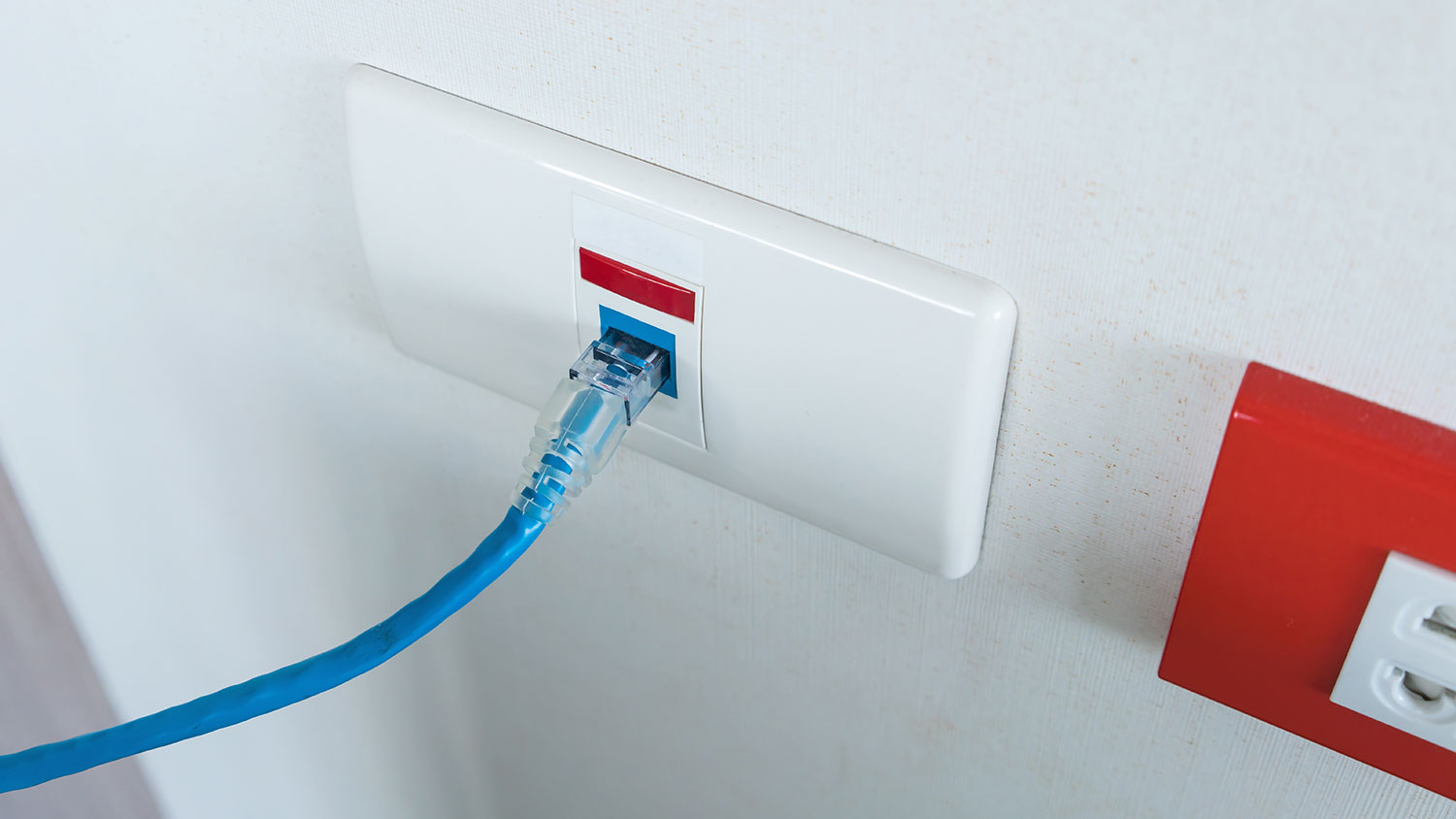
Discover the average fiber optic cable installation cost, including key factors that impact pricing, and learn how to budget for your home project.
Computer repair costs depend on your project and location. Check with a local pro for your specific job.
Internet installation costs vary depending on labor, equipment, and local permits.
Internet installation means setting up wired or wireless internet access in your home, whether for a new build or upgrading your current setup.
Adding outlets or upgrading wiring increases costs, especially in larger homes or those with multiple stories.
A professionally installed system ensures fast, reliable internet for work, streaming, and smart home devices.
Expect to pay $50 to $100 per hour for a technician to install your internet.
This article was created using automation technology and thoroughly fact-checked and edited by an Angi Editor in accordance with our AI policy.
How much does it cost to get internet installed? Homeowners pay an average of $415 for internet installation, with costs ranging from $85 for basic setups to $1,580 or more for complex installations. Pricing depends on your connection type, home size, and any special requirements. These costs matter because reliable internet is now essential for daily life, remote work, and entertainment.
The size of your home and the scope of your internet installation have a direct impact on the final price. Larger homes require more wiring, equipment, and labor, especially if you need strong Wi-Fi coverage in every room or across multiple floors. Retrofitting existing homes can add to the complexity and cost, while new construction offers easier access for running cables and installing network hardware. Homes with outbuildings or special coverage needs, such as detached garages or workshops, will also see higher installation costs due to additional cabling and equipment.
| Home Size | Description | Average Cost |
|---|---|---|
| Small apartment or condo | One to two rooms, minimal wiring needed | $100–$400 |
| Medium single-family home | Three to five rooms, some attic or wall work | $400–$1,500 |
| Large/multi-story home | Six or more rooms, multiple floors, extensive wiring | $500–$1,000 |
The type of internet cable connection you choose is a major cost driver. Fiber optic, coaxial, and twisted cables have unique requirements and price points.
Fiber delivers the fastest speeds but can require trenching or extensive new wiring, driving up installation costs. Cable options are more widely available but may offer slower speeds.
| Connection Type | Cost per Ft. |
|---|---|
| Fiber optic | $1–$6 |
| Coaxial cable | $0.05–$0.20 |
| Twisted cable | $0.60–$2.40 |
Several factors influence how much it costs to get internet installed. Beyond the basics of connection type and home size, the details of your installation can change the price significantly.
Professional installation involves skilled technicians from your ISP, electricians for new wiring, or low-voltage specialists for complex networks. Labor rates range from $50 to $100 per hour, with minimum service fees applied. More complicated jobs, such as running cables through finished walls or multi-story homes, can increase labor costs. Location also matters—urban areas may have lower rates due to competition, while rural jobs can include travel surcharges.
Permits are sometimes required for exterior work or significant new wiring, especially in new construction or when trenching is needed for fiber optic lines. Your provider may handle permits, but homeowners are sometimes responsible for securing and paying for them. Some projects also require an inspection, which can add further cost.
Extra outlets, wall jacks, or Ethernet ports improve coverage but increase installation costs. Adding Wi-Fi extenders or mesh networks can boost signal strength in large or multi-story homes. Upgrading to surge-protected wiring or integrating smart home features calls for more labor and materials. Custom network setups and advanced security systems may also require consultation and design fees.
Beyond installation, there are ongoing and occasional costs to keep in mind as you budget for home internet.
Some providers offer warranties for installation work or equipment, covering labor, hardware, or service for a set period. Extended warranty or service plans add annual costs but may save money on future repairs or replacements. Check what’s included—some warranties only cover the modem and router, while others extend to wiring or network components.
Monthly service fees are not part of installation but are important for overall budgeting. Expect to pay $40 to $300 per month depending on speed and provider. Equipment rental for modems, routers, or mesh systems can add to monthly costs. Watch for data overage charges or upgrade fees if your household uses a lot of bandwidth.
Routine maintenance includes updating firmware, checking equipment, and occasional troubleshooting. Replacing damaged or outdated equipment—like routers or mesh nodes—can add to maintenance costs. Professional maintenance visits are not required unless you experience problems.
Sales tax applies to installation services and equipment in many states, ranging from 5% to 10%. Some municipalities add local fees to installation or monthly bills, so check your provider’s breakdown.
Homeowners insurance covers accidental damage to installed wiring or equipment, but high-value networking gear may need additional coverage. Filing a claim could impact future premiums, so review your policy and consider separate protection for expensive setups.
Many ISPs offer self-installation kits that include a modem, router, necessary cables, and instructions. DIY works best for simple setups—like apartments or homes with existing wiring. However, you’ll need basic tools and comfort working with cables and electronics. Risks include connectivity problems, equipment damage, or voided warranties if the installation is not up to standard. DIY projects also require more time for troubleshooting and setup.
In comparison, professional installation ranges from $85 to $1,580, depending on complexity. We recommend hiring a pro for larger homes, custom wiring, or when upgrading to fiber. Professional installation offers peace of mind, reliable performance, and ongoing support if issues arise.
Sometimes, you need to choose between repairing existing internet infrastructure or replacing it entirely. Look for signs of trouble like slow speeds, dropped connections, or visible damage to wiring and equipment. Replacing outdated or non-functional equipment—such as modems, routers, or running new cabling ranges.
If repair costs exceed half the price of replacement, replacement is the smarter investment for long-term reliability. Upgrading from DSL to fiber or adding smart home features will drive up installation costs but can offer better performance and future-proof your home. Repair may be more affordable short-term, but replacement delivers better speed and reliability.
Investing in professional internet installation can add value and appeal to your home, especially in markets where high-speed connectivity is in demand. Reliable, fast internet is a must-have for many buyers, making your property more attractive and potentially boosting resale value.
Compared to other home technology upgrades, internet installation delivers a strong return on investment, particularly if you choose high-speed options compatible with smart home devices. Benefits include improved safety, efficiency, and universal design—supporting remote work, telehealth, and streaming. Concealed wiring and organized network hubs also enhance your home’s aesthetics and functionality.
Save on your internet installation costs with these budget-friendly strategies:
Compare internet installation quotes from multiple providers before committing.
Choose the right internet connection type for your needs and budget.
Bundle installation with other home services for potential discounts.
Schedule installation during promotional periods or off-peak times.
Reuse existing wiring or equipment when possible.
Limit custom features or advanced setups to reduce labor costs.
Negotiate with providers for waived or reduced installation fees.
Home is the most important place on earth, which is why Angi has helped more than 150 million homeowners transform their houses into homes they adore. To help homeowners with their next project, Angi provides readers with the most accurate cost data and upholds strict editorial standards. We extensively research project costs to develop the pricing data you see, so you can make the best decisions for you and your home. We rely on reputable sources, including the U.S. Bureau of Labor Statistics, academic journals, market studies, and interviews with industry experts—all to ensure our prices reflect real-world projects.
Want to help us improve our cost data? Send us a recent project quote to [email protected]. Quotes and personal information will not be shared publicly.
From average costs to expert advice, get all the answers you need to get your job done.

Discover the average fiber optic cable installation cost, including key factors that impact pricing, and learn how to budget for your home project.

Discover the average Ethernet installation cost, including labor, materials, and tips to save. Get transparent pricing and expert advice for your project.